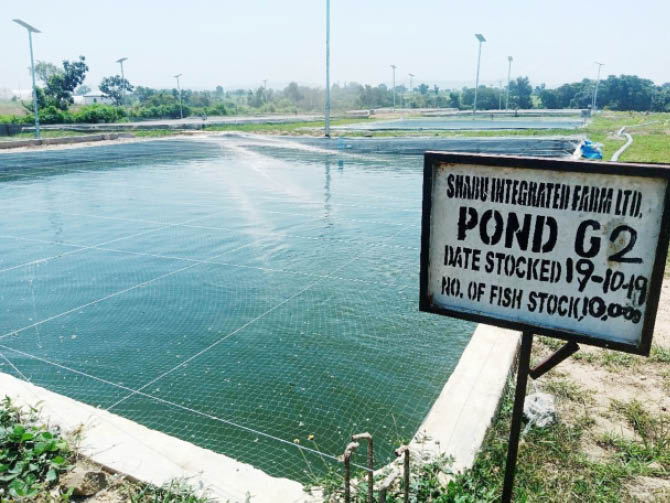Fish farmers say challenges getting worse
Due to serious challenges confronting the aquaculture industry, fish farmers are currently facing intense threats that may force them to go out of business. One of the factors attributed to this, according to findings by Daily Trust on Sunday, is the rising cost of feeds, which cut across all fish species. The other is “irregular […]

A fish farm
Due to serious challenges confronting the aquaculture industry, fish farmers are currently facing intense threats that may force them to go out of business.
One of the factors attributed to this, according to findings by Daily Trust on Sunday, is the rising cost of feeds, which cut across all fish species. The other is “irregular prices attached to fish products”.
The demand for fish increased approximately from 1.392 million tons to 1.889 million tons between 2004 and 2012, with only 20 per cent of this demand met locally, according to available data.
Based on the great business opportunities in the country’s aquaculture, experts claim Nigeria has the potential of 3.2 million tons of fish production with room for expansion, but that due to several challenges, the growth in the sector has been stunted over the years.
Our reporter visited the Kado Fish Market in Abuja. The market is a one-stop hub for fish and other things relating to cooking
James Idikwu, a fish feeds seller, said the prices of all brands of fish feed had gone up compared to what obtained three years ago.
He said, “In 2019, 2mm of fish feed we sold for N11,000 is now being sold for N22,000. Most factors that make the fish feed high are the costs of electricity for production, transportation and bad government policies.”
Idikwu, therefore, appealed to the federal government to ease access to foreign exchange (forex) for fish farmers and other farmers through the Central Bank of Nigeria (CBN) and other windows, adding that government should also provide waivers to fish feed importers so that Nigerian farmers could get fish feeds at lower rates.
A fish farmer, Joseph Ikechkwu, while noting that aquaculture is growing at a faster rate and the challenges getting bigger, said the high cost of feeds was caused by total dependence on feed importation, adding that about 80 per cent of the feeds were imported.
He said, “This is one of the things the government should have done, by establishing feed mills. We have raw materials for the establishment of feed mills, but it has not been considered. So, the cost of feeds is taking the highest budget in aquaculture.
“Taking a critical look at agriculture, one can easily access a rice farm if it’s 10 hectares or more; it could easily be ascertained. That also goes for livestock, the number of the animals can be counted, but for aquaculture, the fish grows in the water and nobody sees it, fish farmers are underrated, that’s why we don’t get assistance in terms of loans.”
